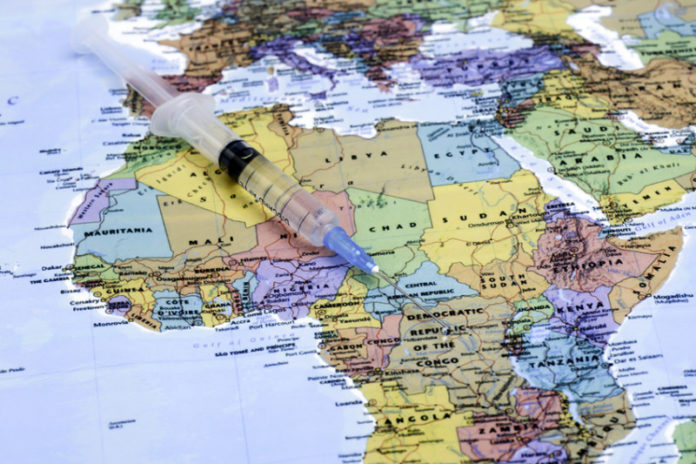
The World Health Organisation declared the Ebola virus outbreak a public health emergency in August 2014; since then the development of vaccines against Ebola virus has been fast tracked.
Experts at St. George’s, University of London, are working in collaboration with other international researchers on one of these vaccines; rVSV-ZEBOV-GP. Researchers are now vaccinating a larger population to examine the efficacy of this vaccine.
The initial study, which tested the safety, tolerability and immunogenicity of the vaccine, has been successfully completed; with the first volunteer vaccinated in November 2014. Volunteers in Kenya, Gabon, Switzerland and Germany participated in this harmonised phase I clinical trial.
The rVSV-ZEBOV-GP vaccine, which is named after its components, carries only one protein (GP) from the Zaire strain of the Ebola virus (ZEBOV) on the surface of a different virus (VSV) that infects cows, horses, pigs and insects. The Ebola virus protein by itself is not able to cause any disease, and VSV only causes minimal illness in humans.
Currently, it is the only vaccine against Ebola virus disease in clinical trials that is made from a replicating virus. The advantage of this type of vaccine is that the immune system may develop an effective protective response to Ebola virus, and it allows the use of a lower dose of vaccine. Furthermore, only one shot of vaccine may be required, minimising the number of visits to healthcare workers needed to develop protection.
Experts at St. George’s, University of London, are part of an international consortium (VEBCON) that provided results essential to begin a clinical trial to test the vaccine in Guinea. They say early results are good and responses to the vaccine are promising.
Professor Sanjeev Krishna, of the university’s Institute for Infection and Immunity, said: “We have not had such urgency to deliver a viable vaccine or treatment since the coming together of medical experts in the early 1980s tackling HIV. The progress of these clinical trials is very promising and this vaccine adds significantly to the options available for testing against Ebola virus.”
“Although cases of Ebola virus disease are now decreasing, the outbreak has left an appalling legacy. If a vaccine had been available, the health workers tackling this scourge could have been protected. We still urgently need a safe and effective vaccine to protect people in the future. This research works towards meeting that need.”
The consortium examining the Ebola virus vaccine is led by our colleagues in Lambaréné at CERMEL, Gabon, coordinated by Dr Selidji Agnandji, and by Professor Peter Kremsner in their partner institute at University of Tübingen in Germany.
Professor Krishna acts as a scientific advisor to the consortium, and was among a consortium of experts convened by the WHO, in September 2014 in Geneva, to discuss solutions and strategies for combatting the current Ebola virus crisis. The candidate vaccine is called rVSV-ZEBOV-GP and was developed by the Canadian Public Health Agency and produced by the US firm NewLink Genetics. A new paper on the Phase I trial has been published in the New England Journal of Medicine.
Story Source:
The above story is based on materials provided by University of St George’s London. Note: Materials may be edited for content and length.
Journal Reference:
- Selidji T. Agnandji, M.D., Angela Huttner, M.D., Madeleine E. Zinser, M.D, et al. Phase 1 Trials of rVSV Ebola Vaccine in Africa and Europe — Preliminary Report. New England Journal of Medicine, 2015 DOI: 10.1056/NEJMoa1502924
